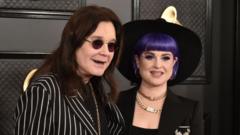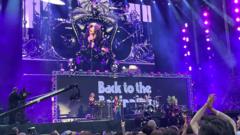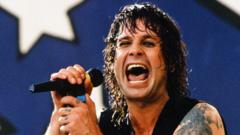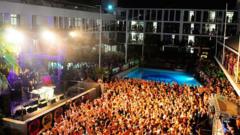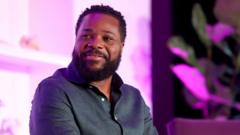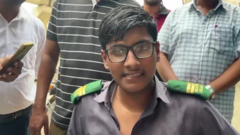Pope Francis died unexpectedly on April 21, 2025, following a cerebral stroke, prompting an outpouring of grief and admiration from around the world. Leaders lauded his dedication to social justice, particularly for migrants and the marginalized, while others noted the complex and often contentious legacy he leaves behind. Cardinal Kevin Farrell takes on the role of administrator as discussions about the next papal conclave begin.
**The Legacy of Pope Francis: Mourning and Reflection on a Controversial Papacy**

**The Legacy of Pope Francis: Mourning and Reflection on a Controversial Papacy**
In the wake of Pope Francis's passing, global leaders express their sorrow and reflect on his enduring influence. Mourners gather in St. Peter’s Square, paying tribute to his commitment to the marginalized and advocating for a simpler life.
---
As the sun set over St. Peter's Square on April 21, 2025, crowds gathered to mourn the unexpected loss of Pope Francis, who died at 88 after a cerebral stroke. The Vatican's announcement, which described his demise as a deeply somber moment, caught many off guard, especially following his public Easter blessing just a day prior. Mourners collected in tears, embracing the pontiff's enduring legacy as world leaders sent tributes reflecting on his humanitarian impact.
Pope Francis, who championed the cause of the poor while striving to reshape the Catholic Church into a more inclusive institution, leaves a complex legacy. Known for his simple lifestyle and humble leadership style, he had requested a simple tomb, marked only with his name, "Franciscus." In his 12 years as pontiff, many admired his resistance to traditionalist pressures, yet some critiqued him for his handling of the church's ongoing challenges, such as sexual abuse scandals and financial management issues.
His influence extended globally, and celebrations of his life and work were pronounced. U.N. Secretary-General António Guterres called him a "messenger of hope," and former President Barack Obama noted his ability to inspire worldwide, reminding people of their moral obligations. Francis faced opposition from more conservative factions within the church while maintaining a progressive focus on social issues like climate change, immigration, and economic disparity.
In stark contrast to his predecessors, Francis prioritized a more decentralized church structure, encouraging local bishops to take a greater role in governance. His appointments reflected a shift toward diversity and representation, favoring leaders who mirrored his commitment to social justice and inclusivity. As the world now reflects on Francis's contributions, speculation surrounds which direction the next pope might take—whether to continue his progressive agenda or revert to more traditional values.
The path forward includes deciding on a successor amid his legacy. Cardinal Kevin Farrell, currently overseeing the Vatican during the transition, will oversee the necessary rituals leading to a conclave to elect Francis's successor. The subsequent decision could tilt the church's future towards a more progressive or conservative approach.
In the days following his death, vigils and services honoring Pope Francis occur worldwide, with many congregations remembering his dedication to truth, compassion, and a collective care for the less fortunate. As discussions emerge about potential candidates for the next papacy, the ongoing global conversation about his life and the challenges ahead for the Catholic Church continues.
As the sun set over St. Peter's Square on April 21, 2025, crowds gathered to mourn the unexpected loss of Pope Francis, who died at 88 after a cerebral stroke. The Vatican's announcement, which described his demise as a deeply somber moment, caught many off guard, especially following his public Easter blessing just a day prior. Mourners collected in tears, embracing the pontiff's enduring legacy as world leaders sent tributes reflecting on his humanitarian impact.
Pope Francis, who championed the cause of the poor while striving to reshape the Catholic Church into a more inclusive institution, leaves a complex legacy. Known for his simple lifestyle and humble leadership style, he had requested a simple tomb, marked only with his name, "Franciscus." In his 12 years as pontiff, many admired his resistance to traditionalist pressures, yet some critiqued him for his handling of the church's ongoing challenges, such as sexual abuse scandals and financial management issues.
His influence extended globally, and celebrations of his life and work were pronounced. U.N. Secretary-General António Guterres called him a "messenger of hope," and former President Barack Obama noted his ability to inspire worldwide, reminding people of their moral obligations. Francis faced opposition from more conservative factions within the church while maintaining a progressive focus on social issues like climate change, immigration, and economic disparity.
In stark contrast to his predecessors, Francis prioritized a more decentralized church structure, encouraging local bishops to take a greater role in governance. His appointments reflected a shift toward diversity and representation, favoring leaders who mirrored his commitment to social justice and inclusivity. As the world now reflects on Francis's contributions, speculation surrounds which direction the next pope might take—whether to continue his progressive agenda or revert to more traditional values.
The path forward includes deciding on a successor amid his legacy. Cardinal Kevin Farrell, currently overseeing the Vatican during the transition, will oversee the necessary rituals leading to a conclave to elect Francis's successor. The subsequent decision could tilt the church's future towards a more progressive or conservative approach.
In the days following his death, vigils and services honoring Pope Francis occur worldwide, with many congregations remembering his dedication to truth, compassion, and a collective care for the less fortunate. As discussions emerge about potential candidates for the next papacy, the ongoing global conversation about his life and the challenges ahead for the Catholic Church continues.








